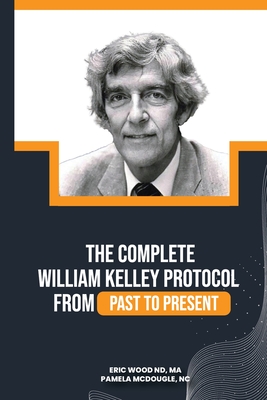於英國倫敦大學醫學院畢業的伍志堅醫生,1997年退休後,在美國 Mount Rainier Clinic 跟隨治本醫學始創者克蘭頓醫學博士學習,並翻譯了克蘭頓醫學博士的名著 Bypassing Bypass Surgery《向通波仔說不》。2008年開始在香港實踐和推廣治本理論和療法;伍醫生曾經在他的博文《治本清癌》 分享他的一位病人被確診患有已轉移的癌症11年了,她堅持採用「凱利療法」。健康良好,並且沒有癌症的跡象。 最後她停止了凱利療法。除了偶爾有一些心率不整,感覺良好,沒有其他問題。曾經在他的博文《治本清癌》 分享他的一位病人被確診患有已轉移的癌症11年了,她堅持採用「凱利療法」。健康良好,並且沒有癌症的跡象。 最後她停止了凱利療法。除了偶爾有一些心率不整,感覺良好,沒有其他問題。
1987年,子宮癌殺死2900美國婦人。通過子宮切除手術,大多數局部子宮癌是可以治癒的;但是一旦已轉移,預後是非常差的。現時,大約80%子宮癌患者能夠存活5年。
子宮三級腺癌(adenocarcinoma)個案
他在著作中提及的一位病人,是來自華盛頓州的72歲婦人。從她被確診患有子宮癌,她已存活了近18年。
在患癌症之前,她的健康一向良好;並且有5次懷孕的記錄。1966年,即是她52歲那年渡過更年期。72歲時候,病人第一次體驗多次陰道出血,每次持續超過6個星期。1969年10月尾,她諮詢她的婦科醫生。醫生做子宮活撿,結果顯示是子宮腺癌。組織樣本檢查結果,證實是三級(grade III)腺癌(adenocarcinoma)──侵略性最強的一種。
她的醫生建議先來一個放療療程,然後切除子宮。病人同意了,並在醫院完成一個放射植入治療(radiation implant therapy),共5120 rads。 接受治療後,她於1969年11月7日回家。情況穩定。12月9日,她再次入院,接受子宮和卵巢切除手術。在手術期間,醫生沒有發現任何癌症轉移的跡象;並假設她已痊癒了。
期後6年,她的健康漸漸下滑;並且體驗疲勞、抑鬱和下腹痛。幾個醫生的各種檢查都不能解釋健康下滑的原因。一位醫生甚至說:「你沒有病,只是你的心理作用。」
癌症有已轉移到骨盆和肺
1975年秋季,婦人再去見醫生。這次,外科顧問醫生發現骨盤裏有一個腫瘤,懷疑是子宮癌復發;而胸X光顯示癌症已轉移到兩邊肺。檢查中發現幾個肺結節,最大的直徑有1.3cm,最有可能是癌症轉移。外科醫生在左边骨盤切除了一個5.5×4.5x3cm、伸延到附近組織的大腫瘤;並證實是已轉移了的子宮內膜腺癌(endometrial adenocarcinoma)。手術後的X 光顯示多個肺結節。腫瘤科醫生建議一個猛烈的化療療程,但她終於拒絕了。然而,她願意接受一個17-α-羥孕酮(17-alpha-hydroxyprogesterone)──一種給已轉移子宮癌患者的常规合成羥孕酮療法。
1975年12月1日,婦人出院,身體非常虛弱。即使接受了荷爾蒙療法,她的情況變得更差──愈來愈疲勞和氣促,可能與癌症已轉移到肺有關。到1976年3月,她已不能起床,距離死亡不遠。
Kelley Diet 凱利飲食
偶然地,她發現了《凱利療法》,並且決定接受他的療法。1976年4月,她諮詢凱利醫生,雖然他的醫生反對「庸醫療法」(quackery),她開始凱利療法的療程。但僅僅一年內,她的症狀包括氣促已全部消失。
凱利飲食是由Willian Kelley醫生在1960年提出的,他將這種飲食和他的酶協議結合起來治好了他自己的第四期胰腺癌。這種飲食目的是為了有足夠的營養密度,最佳免疫力和最大化的荷爾蒙控制體格去幫助肝腎排毒。這種飲食也可以配合其他自然療法達至最佳效果 (包括 Kelley enzyme protocol, infrared saunas, ozone therapy and rife therapy)。
從他被確診患有已轉移的癌症11年了,她依然堅持採用凱利醫生的「庸醫療法」。她的健康良好,並且沒有癌症的跡象。由於她的醫療保險拒絕支付凱利的補充劑費用,她停止了凱利療法。除了偶爾有一些心率不整,她感覺良好,沒有其他問題。
自從她開始接受凱利療法,他再沒有和她的醫生接觸。1984年11月,她回去接受評估,她的醫生寫了一份不尋常的報告:胸X 光沒有顯示任何問題,十分正常——尤其是,見不到任何癌症轉移的跡象。伍醫生分享令他確難以置信的是,她在1975年已被證實癌症有已轉移到骨盆和肺。
根據研究,不管接受了任何猛烈的常規療法,少過14%患了已轉移的子宮癌的患者能夠存活5年。即使婦人繼續接受荷爾蒙療法,也不能治癒已轉移了的子宮癌(註1)。
透過綜合與自然的有效方法提升癌病患者的免疫系統功能,可協助癌病病人應付傳統化療帶來的負作用及提升生活質素、延緩癌病散。
參考資料:













